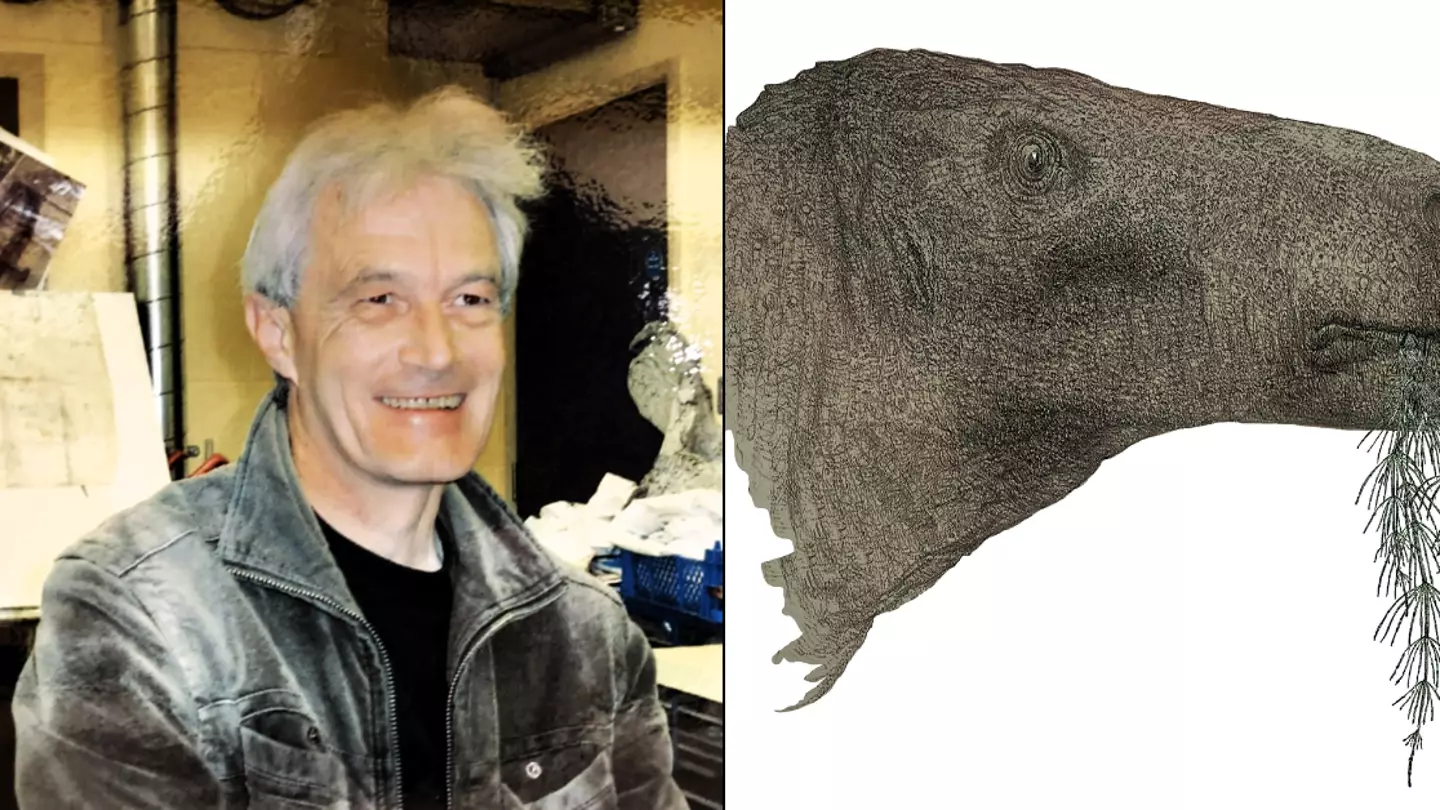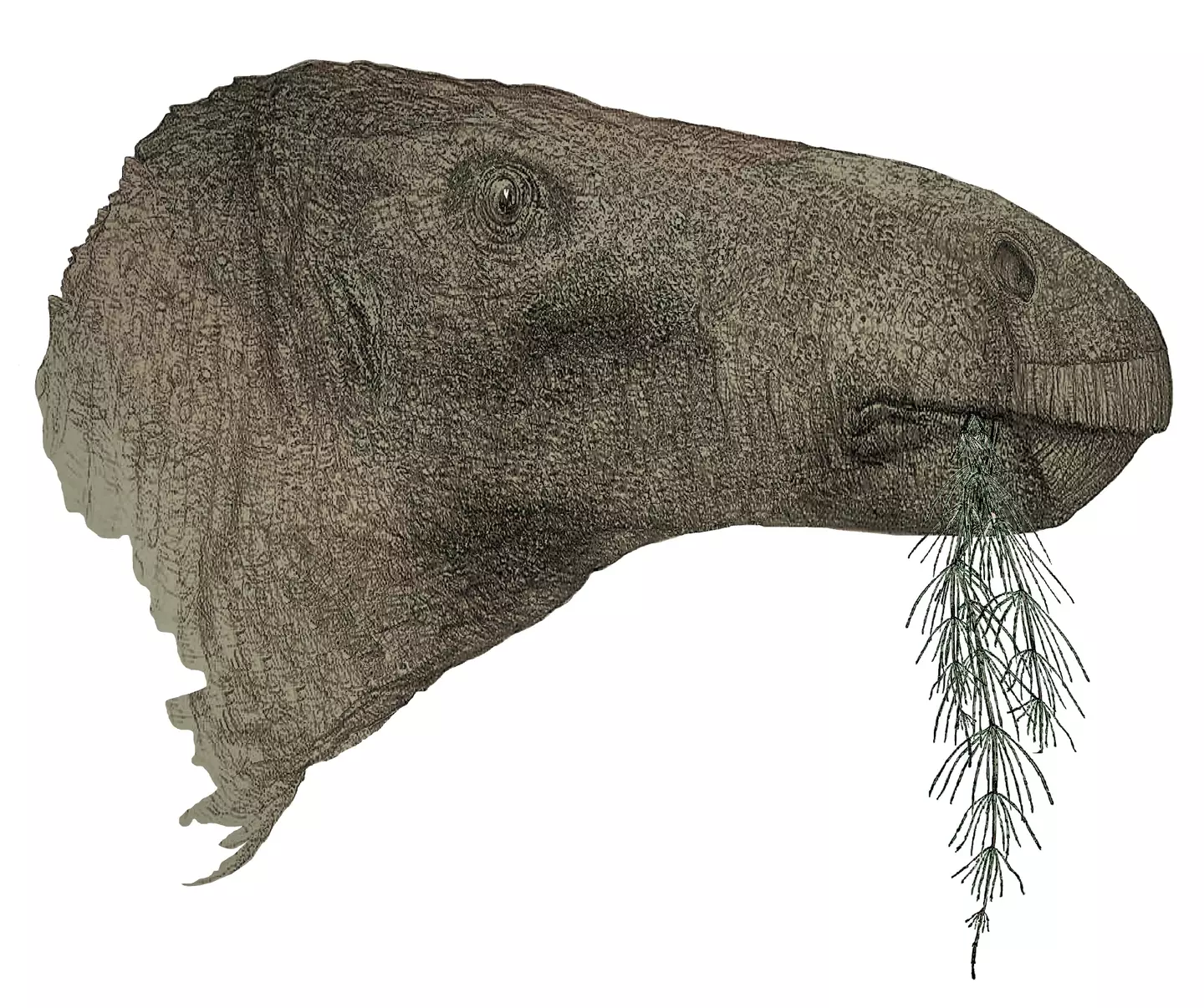
A new species of dinosaur has been dug up on the Isle of Wight and it's thought to have weighed the same as an African elephant.
The dino, which was excavated from the cliffs of Compton Bay, has 149 bones in total and is the 'most complete' fossil discovered in the UK in a century.
Comptonatus chasei, named after late fossil hunter Nick Chase and the place where it was found, would have been a pretty hefty guy, weighing in at a whopping 1,000 kilograms.
Advert
It belongs to a group of plant-eating dinosaurs known as iguanodontians, which are often described as the 'cows of the Cretaceous period' due to their large, bulky stature.
Eight extinct species from the Isle of Wight have been named in the last five years.
Experts have described the discoveries as 'remarkable,' and say nearby areas may have once had 'one of the world's most diverse ecosystems.'
Jeremy Lockwood, a PhD student at the University of Portsmouth, said: "This animal would have been around a tonne (1,000kg), about as big as a large male American bison.

"Evidence from fossil footprints found nearby shows it was likely to be a herding animal, so possibly large herds of these heavy dinosaurs may have been thundering around if spooked by predators on the floodplains over 120 million years ago."
For a study published in the Journal of Systematic Palaeontology, researchers analysed every part of the fossil, including its skull, teeth, spine, leg bones and pubic hip bone, which is said to be 'about the size of a dinner plate.'
Lockwood said it is unclear why this hip bone was so big, but theorised: "It was probably for muscle attachments, which might mean its mode of locomotion was a bit different, or it could have been to support the stomach contents more effectively, or even have been involved in how the animal breathed, but all of these theories are somewhat speculative."

Comptonatus chasei was first discovered by Nick Chase in 2013. The late fossil hunter died of cancer just before the Covid-19 pandemic.
However, because the fossil was almost complete, it took Lockwood and his colleagues several years to analyse it.
"I began looking at the specimen six years ago and described it as part of my PhD thesis, which took five years," he said.
"So it was quite a long journey from finding to publication."
He also paid tribute to the dino's original founder, saying: "Nick had a phenomenal nose for finding dinosaur bones.
"He collected fossils daily in all weathers and donated them to museums.
"Despite his many wonderful discoveries over the years, including the most complete Iguanodon skull ever found in Britain, this is the firs dinosaur to be named after him."
